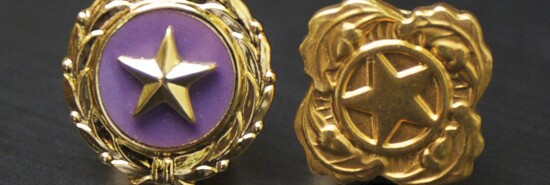
Gold Star honor
Trent Reedy
Austin Audo was 9 when his father, Army Maj. David Audo, left for a fifth deployment in place of a friend who was suffering deep personal challenges. Austin would never again see his father alive. Fourteen years later, it’s still a challenge for Austin to tell the story of that terrible loss.
On an average Kansas City school day in 2009, Austin was kept back in his classroom at the end of the day. His teacher didn’t know why. Little Austin calmly drew an angry red tornado on the whiteboard. Finally, the office summoned him away from the storm he’d drawn and into the heart of a hurricane of grief.
He was led into a large room where teachers looked upon him with a sadness he’d likely never seen in them. His mother was there, crying, incoherent. He ran to hug her. Before deploying, his father had asked Austin to be strong.
A well-dressed female military aide sat Austin down. “Your father has gone to Heaven.”
His teacher gasped. “My mother was in front of me,” Austin told me. “My father was no longer there.”
Memory, especially surrounding those events that cleave our lives forever into two separate, before and after, eras, is often a hazy thing. He and his mother returned home, where relatives tried to distract him with games. Subway sandwiches were on the table. He remembers nothing else until the funeral.
Maj. David Audo’s remains would be buried back home in St. Joseph, Missouri. Missouri, a fine state packed with patriots, did not fail Maj. Audo and his family. Law enforcement closed all intersections along the way. The route for transporting the major’s remains from the air base to the funeral was lined with good Americans waving flags.
“It was the highest honor my father could have received,” Austin told me. “He was treated like a king.” Visitation had to be held in a large church and lasted many hours. Maj. Audo’s body was displayed in Army dress blues, with full decorations. “I remember the image,” said Austin. “But it doesn’t curse me anymore.”
Austin, like his father before him, is a great American. Several times during our discussion, he had to comfort me in my awkwardness. “It’s OK. I want to talk about it.”
The wake of such a loss can break people, and the years after the death of his father weren’t easy for Austin. But by the time he graduated high school, he had pushed through the shock and agony of losing his father. He’d developed an interest in working with Gold Star families, helping people the way people had helped him.
Austin is 23, a recent university graduate, and is now working with HillVets, an organization dedicated to advocating for military and Gold Star families in Congress.
I told Austin about my anger over the way our mission in Afghanistan was deliberately laid to waste. “After everything your family sacrificed for our military, after all you lost, how can you not be angry?”
He spoke of his justifiable pride in our military’s lower ranks and of his pride in his father. “That pain never goes away. It changes into something different, and what you make of it is up to you.”
Austin refuses to be a victim, and he is dedicating his life to helping veterans and Gold Star families out of loyalty and a desire to make his father proud. These are dark times for America, but we can find hope and encouragement through the example of Austin Audo’s strength and service. Maj. David Audo would be very proud indeed.
Trent Reedy, author of several books including Enduring Freedom, served as a combat engineer in the Iowa National Guard from 1999 to 2005, including a tour of duty in Afghanistan.
*Some names and call signs in this story may have been changed due to operational security or privacy concerns.
